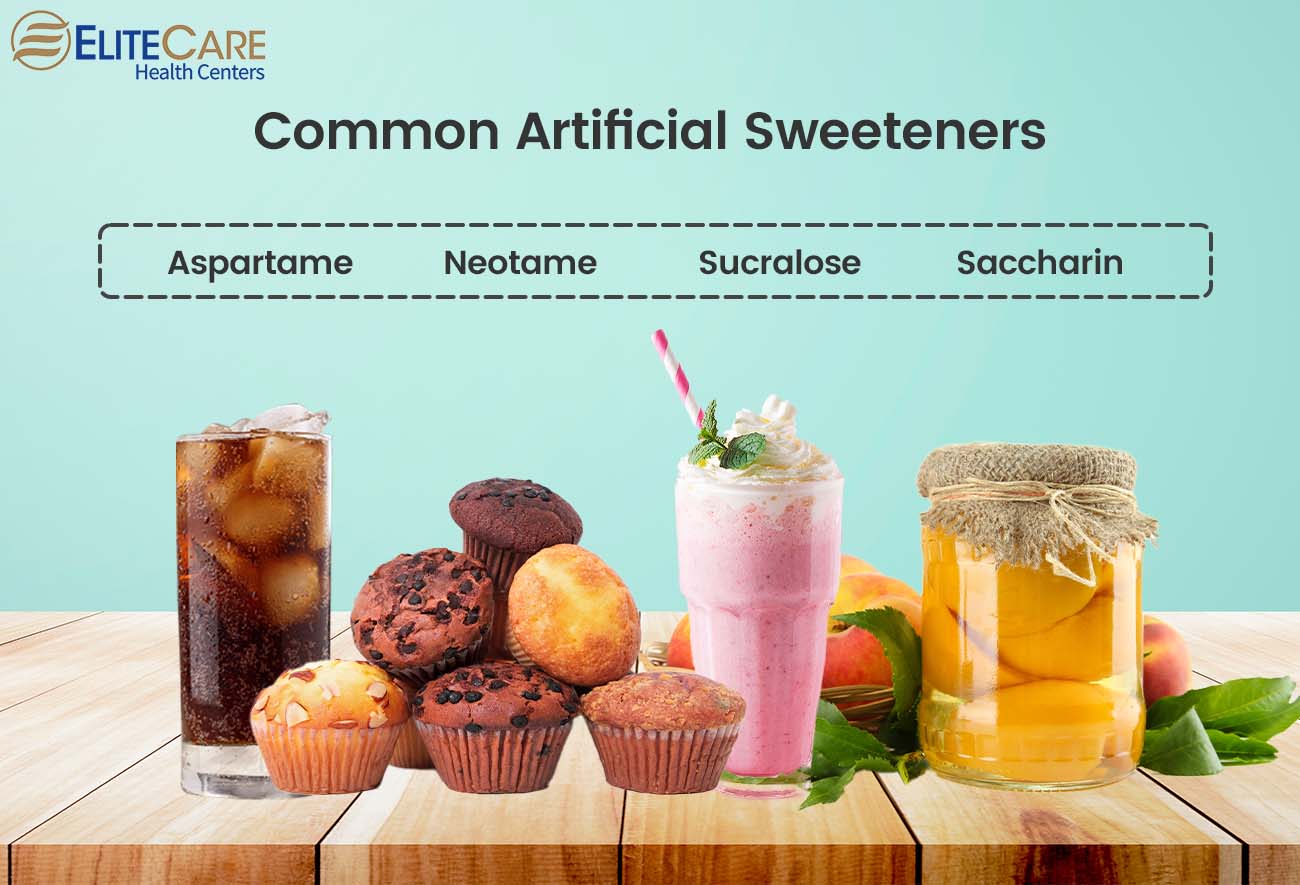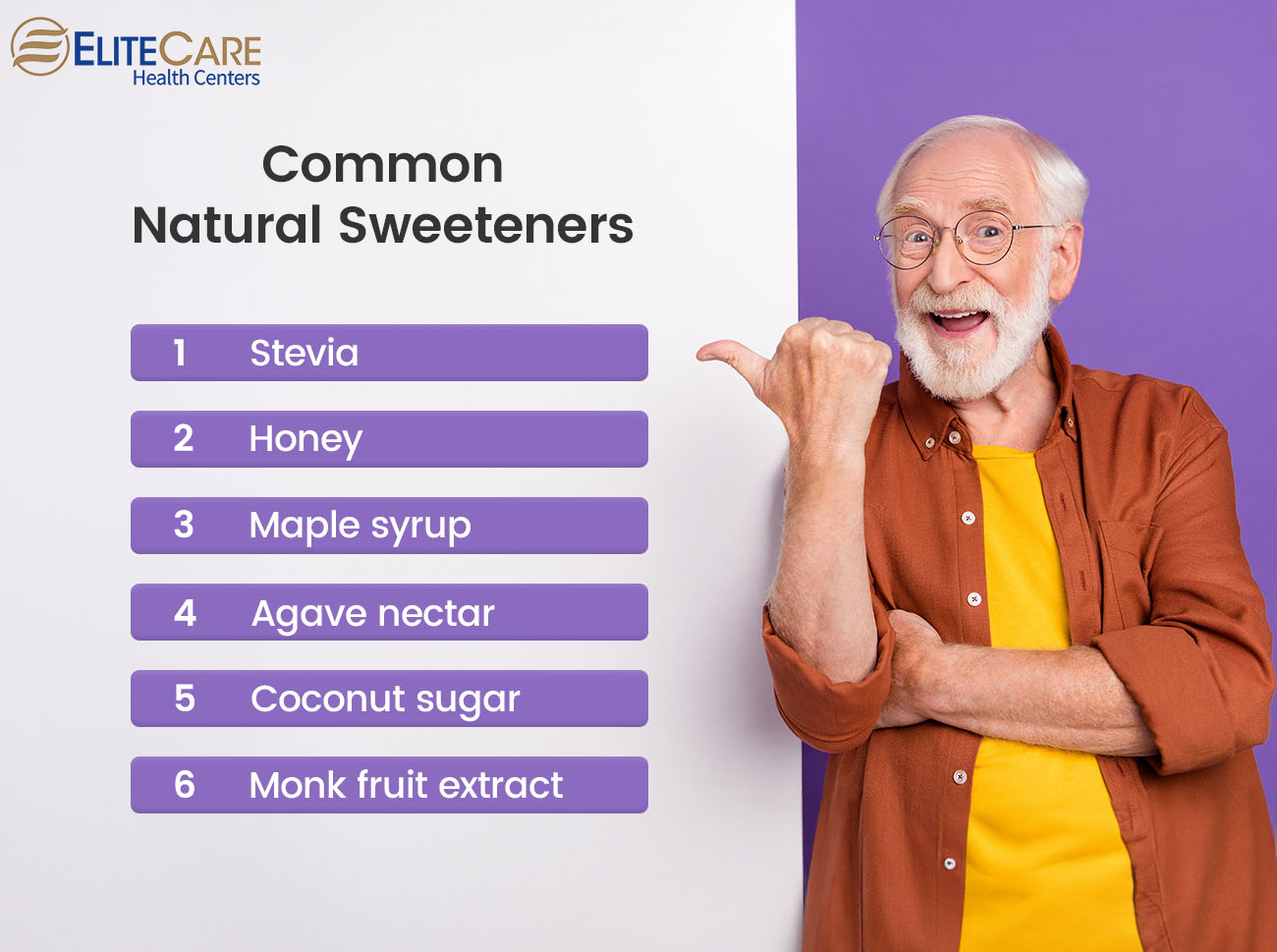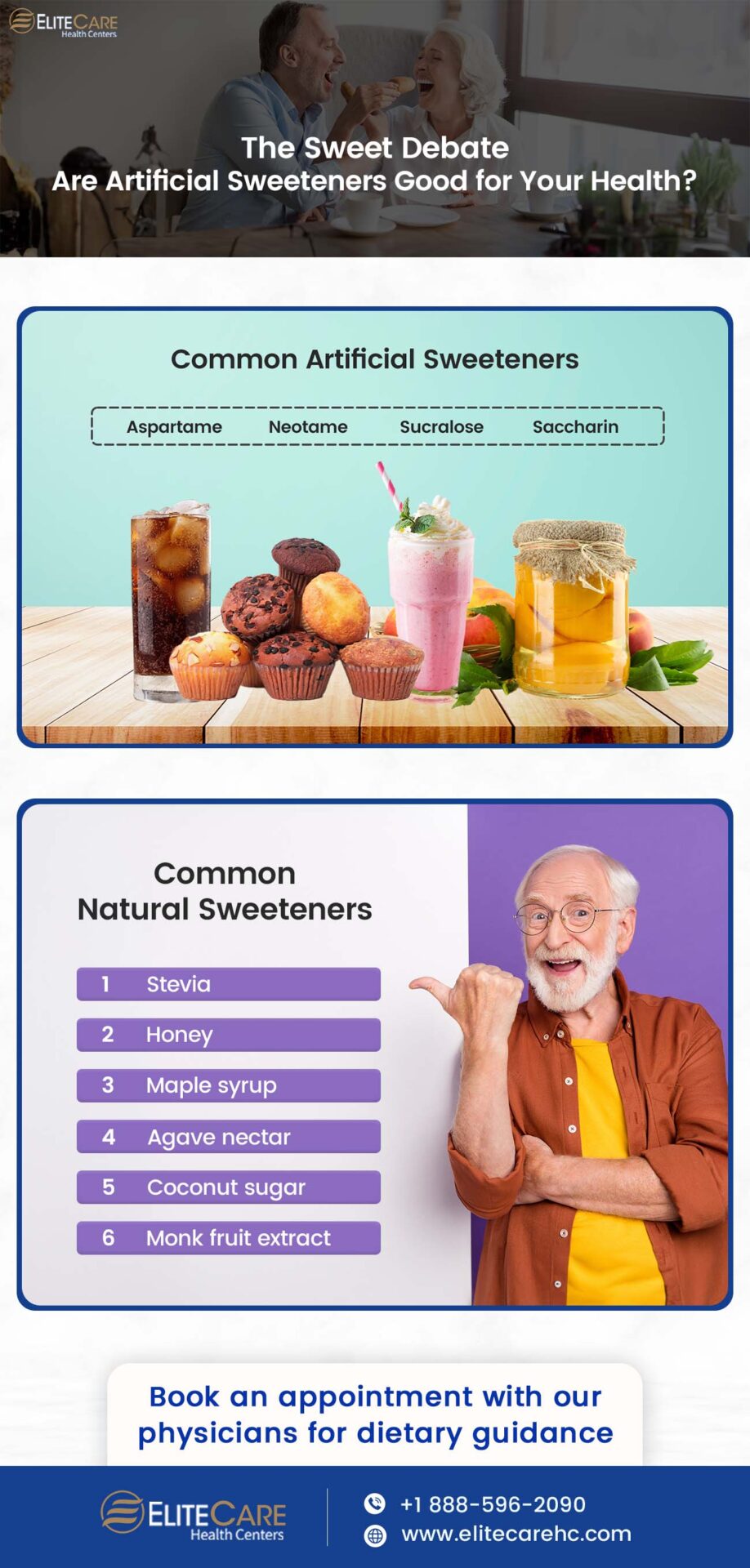
While more and more people are continuously looking for ways to limit their calorie intake, the debate surrounding artificial sweeteners as a substitute for sugar is still sparking controversy. Although the use of artificial sweeteners has been increasing over the past few years as a healthy alternative, the latest research findings suggest otherwise.
In this blog post, we will share a detailed understanding of what artificial sweeteners are, their uses, and how they affect our bodies. Read on to learn more.
What are Artificial Sweeteners?
Also known as sugar substitutes, artificial sweeteners are a diverse group of chemical compounds designed to mimic the sweet taste of sugar. These sweeteners have gained popularity as alternatives to traditional sugar due to their intense sweetness and low caloric content. It has been widely used to avoid the harmful effects of sugar on the body. The following are the most common types of artificial sweeteners:

Common Artificial Sweeteners
Aspartame
Widely recognized as one of the most popular artificial sweeteners, aspartame is commonly found in diet sodas, chewing gum, and various low-calorie products.
Saccharin
It was the first commercially available artificial sweetener, often used in tabletop sweeteners, canned fruits, and diet beverages. Saccharin has a unique taste, described as slightly bitter or metallic by some individuals.
Sucralose
Known for its distinctive yellow packaging, sucralose is a popular sweetener commonly found in baked goods, beverages, and dairy products.
Neotame
Similar to aspartame, neotame is a high-intensity sweetener chemically derived from aspartame. It is approximately 8,000 times sweeter than sugar, and people often use it in baked goods, beverages, and tabletop sweeteners.
How Do Artificial Sweeteners Work?
We have numerous taste buds on the surface of our tongues, each hosting multiple taste receptors responsible for detecting various flavors. During the process of eating, these taste receptors come into contact with molecules present in the food.
When a receptor and molecule form a perfect match, a signal is transmitted to our brain, enabling us to recognize the specific taste. For example, when the sugar molecule flawlessly aligns with the sweetness receptor, our brain identifies the sensation as sweetness.
Artificial sweetener molecules resemble the structure of sugar molecules, allowing them to fit onto the sweetness receptors. However, unlike sugar, our bodies do not metabolize all these sweeteners into calories. This is why they provide a sweet taste without contributing additional calories and other harmful effects of sugar on the body.
Health Concerns Linked to Artificial Sweeteners
Concerns regarding the health implications of artificial sweeteners have gained attention in recent years. The World Health Organization’s (WHO) report, released in May 2023, shed light on several health concerns associated with these sweeteners, urging a cautious approach to their use.
Metabolic health
One significant concern highlighted in the report is the potential impact of artificial sweeteners on metabolic health. Researchers have suggested that these sweeteners may interfere with blood sugar regulation and insulin sensitivity, which could have implications for individuals with diabetes or those at risk of developing the condition.
Gut health
The impact of artificial sweeteners on gut health was a subject of concern in the WHO report. Emerging evidence suggests that these sweeteners may disrupt the composition and function of the gut microbiota, which can significantly impact digestive health, immune function, and overall well-being. The report emphasized more comprehensive research to elucidate the extent of these effects and their potential long-term consequences.
Weight management
Furthermore, the report also addressed the complex relationship between artificial sweeteners and weight management. Contrary to their marketed claims of aiding weight loss, many studies have raised questions about the potential of these sweeteners to actually contribute to weight gain.
Other health issues
The report also highlighted the need for continued scrutiny regarding the potential association between artificial sweeteners and certain health conditions, including cardiovascular disease and certain types of cancer.
While current evidence remains inconclusive, the report emphasized the importance of more research to assess any possible risks associated with the consumption of artificial sweeteners. Therefore, it is crucial to consult a primary care physician to discuss the intake and use of artificial sweeteners in a regular diet.
Are Natural Sweeteners a Better Choice?

Natural sweeteners, such as honey, maple syrup, and stevia, are sourced from natural sources and are often perceived as healthier alternatives to sugar. They not only provide sweetness but also contain additional nutrients and antioxidants.
For example, honey offers antibacterial properties and potential allergy relief, while maple syrup is a good source of minerals like manganese and zinc. Stevia, extracted from the Stevia rebaudiana plant, can offer intense sweetness while having minimal impact on blood sugar levels.
However, natural sweeteners are still a form of sugar and individuals should consume these in moderation. They may contribute calories and affect blood sugar levels. Individuals should always consider their specific health needs and goals before incorporating natural sweeteners into their diet. Contact a healthcare center and consult a primary care physician or registered dietitian for personalized guidance and support.
The Bottom Line
The decision to opt for artificial sweeteners should be based on individual circumstances and health goals. While artificial sweeteners claim to reduce calorie intake, they also come with potential health implications. Also, be mindful of the increased cravings for sweet foods that may come along with excessive use of these sweeteners.
For any queries or concerns about dietary changes or alterations, contact EliteCare Health Centers, a healthcare center in Florida, and consult a primary care physician. We are a leading primary care medical clinic that provides a wide range of senior care services, including venipuncture, annual physical exams, and more.






